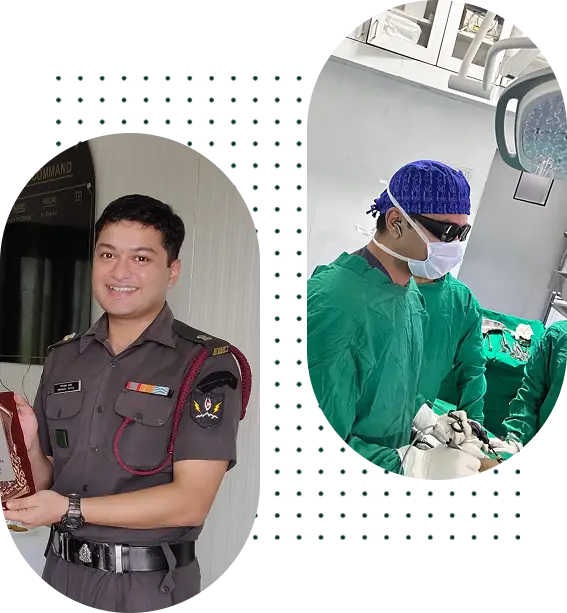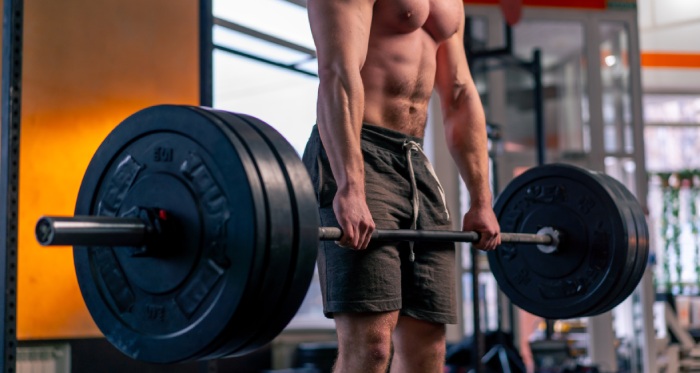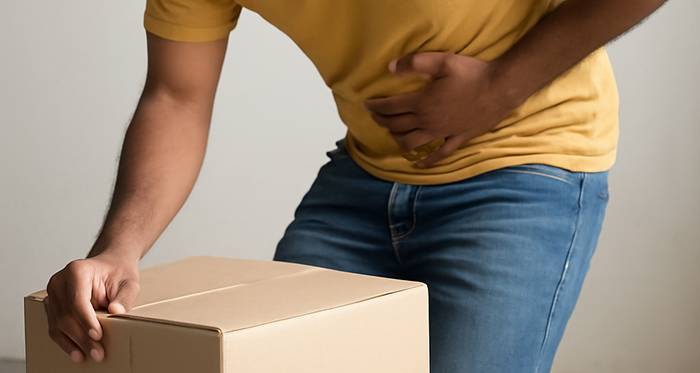Hernia Treatment in Kolkata
These could be signs of a hernia.
Whether you’ve just noticed a small lump or have been managing chronic discomfort, Dr. (Maj) Ranajoy Dutta, an experienced hernia surgeon in Kolkata, offers effective, tailored hernia treatment in Kolkata, backed by years of surgical excellence.
What is a Hernia?
Although not always painful at first, hernia disease doesn’t cure on its own and may worsen over time, especially without medical intervention.

Hernia Types

Inguinal Hernia
It occurs in the lower abdomen, often in the groin area and it is more common in men.

Femoral Hernia
It is found in the upper thigh or groin area and it is more common in women.

Umbilical Hernia
It develops near the belly button and is common in infants, but can also occur in adults.

Hiatal Hernia
It occurs when part of the stomach pushes up into the chest through the diaphragm.

Incisional Hernia
It develops at the site of a previous surgical incision typically where the abdominal wall has been weakened.
Hernia Causes

Call for Appointments
Begin your treatment journey with expert care. Schedule your appointment with Kolkata’s esteemed cancer specialist Dr. (Maj) Ranajoy Dutta today.

Hernia Symptoms
Hernia symptoms in men often appear in the groin (area where the thighs meet the lower abdomen), while hernias in women may also affect the pelvic and abdominal walls.

Hernia Diagnosis

Physical Examination

Ultrasound

CT Scan

X-ray
Hernia Treatment
Dr. Dutta offers both laparoscopic (keyhole) and open hernia surgeries, depending on the type and severity of the hernia. Laparoscopic repair is minimally invasive and ensures faster recovery. Open mesh repair provides a long-term cure, especially for larger or more complex hernias.
Dr. Ranajoy may also prescribe reconstructive hernia surgery for patients with recurrent or complicated cases. Every treatment is carefully planned to assure safety, long-lasting relief, and the best possible outcome.
If you notice any signs, book an appointment with Dr. Ranajoy Dutta, a trusted Hernia Doctor in Kolkata, for early diagnosis and expert laparoscopy care.
Fill The Form
Contact Form

Make Appointment &
Take Care Of Your
Healthy Life

